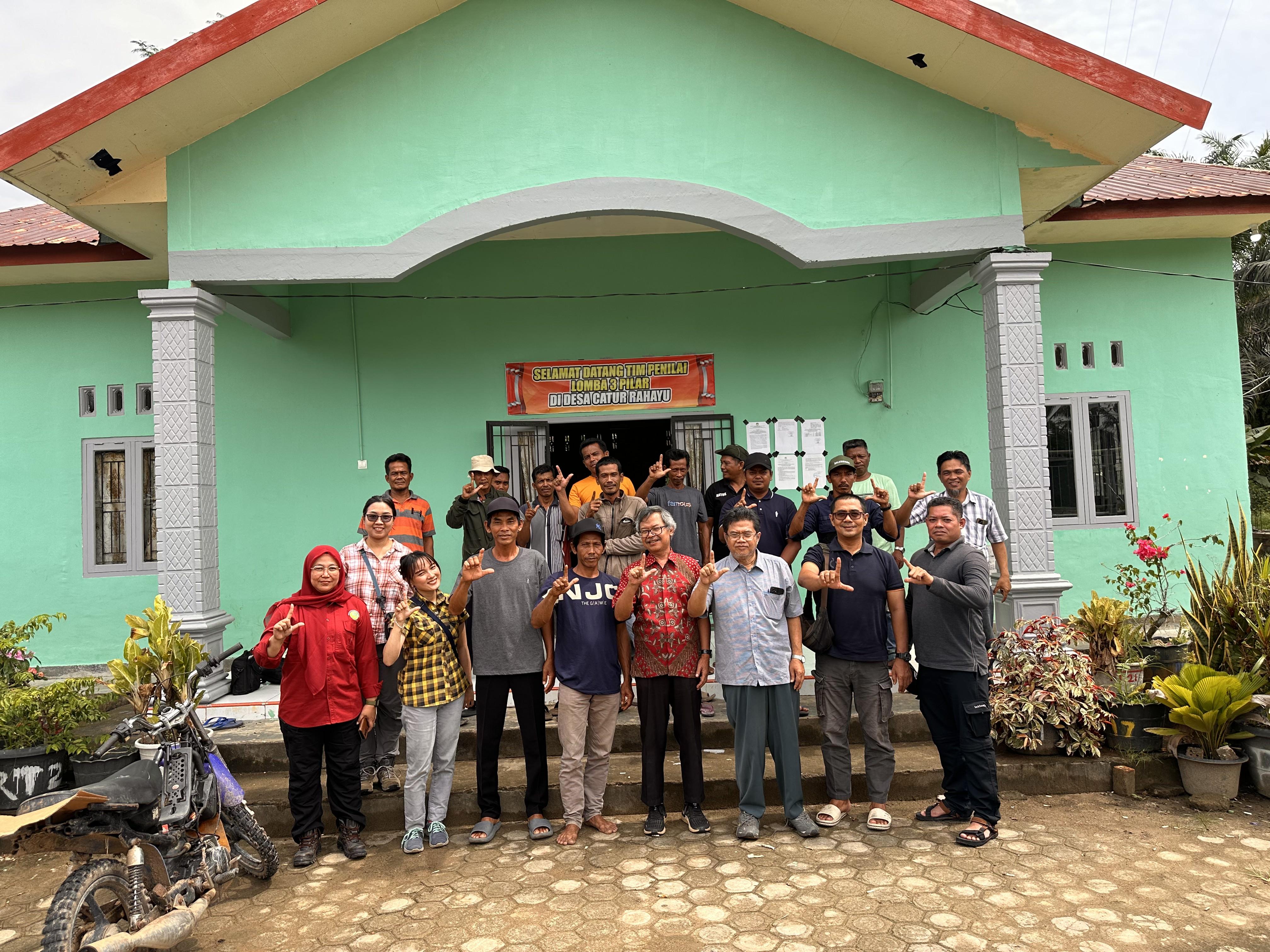FINCAPES Team and IPB University Conduct Site Assessment in Jambi

Jul 10, 2024
From July 5 to 9, 2024, a joint field visit was conducted by the FINCAPES project team and IPB University to assess potential sites for upcoming activities in collaboration with local communities and stakeholders. This visit included key experts and representatives: Prof. Dr. Sri Wilarso Budi R (IPB University), Dr. Ir. Istomo, MS R (IPB University), and Dr. Ir. Asmadi Saad, M.Si (Jambi University).
The team visited several strategic locations, which were recommended by the Jambi Forestry Office, including:
- Catur Rahayu Village, Tanjung Jabung Timur Regency
- Peatland Protected Forest, Londerang, Tanjung Jabung Timur Regency & Muaro Jambi Regency
- Sungai Gelam Village, Sungai Gelam District, Muaro Jambi Regency
The primary objective of the visit was to select suitable areas for FINCAPES-IPB University activities based on the following criteria:
- An area of around 200 hectares within the same hydrological unit (KHG)
- Involvement of local communities to foster ownership and care for the revegetated plants
- Applicability of using the Paludiculture/Agroforestry planting system
- Consideration of accessibility, safety, and security for research purposes
The selected locations will serve as the center for activities aimed at advancing gender-responsive, inclusive, and socially and economically sustainable peatland and biodiversity conservation. Key activities include collaborating with government entities, local stakeholders, and communities to ensure sustainable peatland and biodiversity conservation practices that are gender-responsive and inclusive; as well as providing technical assistance and Training of Trainers (ToT) for local stakeholders on best practices for sustainable and gender-responsive peatland conservation and restoration.
During the assessment, the team engaged with local communities to understand their needs, preferences, and commitment levels towards the conservation efforts. This participatory approach ensures that the activities align with local socio-economic and ecological conditions, fostering a sense of ownership and long-term sustainability. The field visit underscored the importance of community involvement in conservation efforts. By integrating local knowledge and practices, the FINCAPES-IPB University collaboration aims to create a model for effective and sustainable peatland restoration that can be replicated in other regions.
The next steps involve detailed planning and discussions with local communities in the selected sites to finalize the activity plans. The collaboration will also focus on securing the necessary resources and support to implement the conservation initiatives effectively.